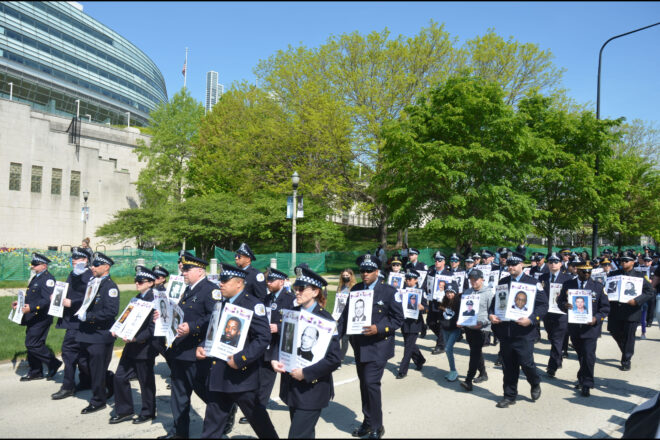Race has long been described as the “third rail” of American politics. The term “third rail” draws upon an analogy to three-track, electric-powered trains. With such tracks, the third rail does not guide the train’s wheels. The third rail carries the high-voltage power that propels the train. The electrical charge when improperly touched can be deadly, and the third rail is dangerous. In our 22 April 2022 news post, A Montage of Lawlessness and Violence, we referenced the longstanding adage, “knowledge is power.” We also made reference to a key observation from Thomas Jefferson, “ignorance is weakness.” With the observation, ignorance of course is not intended as a rhetorical slam, but in the true definition of the word: Having a “lack of knowledge.” The lack of knowledge makes us weaker. In 2017, Professor John Lott, initially an economist and now a noted firearms use and public safety researcher, published a key study enhancing knowledge relative to the use of force by police. The Lott study, “Do White Police Officers Unfairly Target Black Suspects,” was co-authored by Carlisle Moody. Together, they grabbed firmly onto the “third rail” of the continuing and highly-charged discussion involving the use of deadly force by the police.
The Lott-Moody 2017 Police Deadly Force Study
John Lott is currently the president of the Crime Prevention Research Center, which focuses on academic research involving crime, firearms, public safety, and policing. The full “Do White Police Officers Unfairly Target Black Suspects” study is available from the Social Science Research Network (SSRN). The study examined extended data, from over 1,500 towns and cities across the United States, relating to 2,699 fatal police shootings between 2013 and 2015.
Truth, Justice, and Fairness
Without question, Americans highly-value fairness. The belief that no one should be above the law runs deep in the fabric of the nation. For most Americans, among the most effective attacks on the character of those in any profession is to declare that they carry biases that treat others unfairly. The most damaging form of unfairness comes under the banner of racism. In America, to branded as racist is to be reviled. Nearly every police officer in a major city has heard the chants: “No justice. No peace. No racist police.”
So, with the crucial public policy issue of the police use of deadly force – the charges of racial bias should never be ignored. But, they must also never go unexamined. The underlying issues are far too important relative to our overall public safety and the maintenance of a just society.
What was the key finding from the Lott-Moody study?
Relative specifically to white officers and black suspects, the study concluded: “We find no evidence that white police officers are more likely to kill black suspects relative to black officers. We also find no evidence that white police officers kill black suspects with a higher probability than they do white suspects.” (Quoted from Page 19 of the PDF.)
Translation: The charge that white police officers (as a group) unfairly use deadly force when engaging with black suspects versus white suspects is not true.
Even further, the study also concluded that in fact, there was a “higher probability” that an unarmed black suspect would be killed by a black officer, as compared to either white or Hispanic officers. (See Page 15 of the PDF.)
For training and discussion purposes, Secure 1776 provides below a highlighted copy of the study. We encourage all of our followers to review the full study. Use the control buttons at the bottom of the PDF frame to navigate through the document.
Our Thoughts on the Study, Policing and Public Safety
Across a wide range of topics we are regularly urged to look at the data and to “follow the science.” The Lott-Moody study closely analyzed the previous relevant research and all of the available data. The study found that the charge of racism against white police officers, relative to their use of deadly force with black Americans, is not supported by the science. Yet, the charge alone remains extremely damaging.
Secure 1776 was founded on a full embrace of constitutional policing. We reject all forms of racism – particularly in all aspects of the justice system. We also support the combined community-building efforts of the Illinois Association of Chiefs of Police (ILACP) and the Illinois branch of the National Association for the Advancement of Colored People (NAACP). Together, the ILACP and NAACP have identified Ten Shared Principles. Across Illinois, 298 police departments have formally signed onto the principles. More broadly, across the nation, America’s police officers regularly display a professionalism that is consistent with the stated principles.
The racism charge is at the very core of efforts to demonize the entire police profession. We have seen the consequences in weakened police-community relations – particularly in areas where violence was already worst. We know as well that communities of color often suffer the most from rising violence. As a nation, America continues to struggle with the spikes in violence that exploded in 2020 – and the rising lawlessness has yet to truly abate.
The Way Forward
A commitment to truth is absolutely essential in strengthening the police-community relationship. Efforts that intentionally – and falsely – demonize the police reduce public safety and foster lawlessness. We again offer a key question in Latin: “cui bono?” Who indeed benefits from increased lawlessness? Certainly not our communities. Certainly not the police. Our communities must no longer fall victim to those with agendas that breed lawlessness as a means to increase their own political power.
The community is right to expect both constitutional policing that is respectful of civil liberties and public safety. Secure 1776 continues to advance these principles as a foundation for improved public safety. Efforts that facilitate lawlessness and violence must be vocally rejected. As a community, we need our elected officials and civic leaders to speak the truth relative to policing in America. The absence of truth in the discussion of the use of force by the police limits our knowledge, and that lack of knowledge makes our communities weaker. We need those in elective office and with political influence to foster unifying approaches that advance constitutional policing, reduce violence, address chronic crime conditions, improve public safety, protect victims, foster wellness, and enhance community support for the police. Our communities are always safer when the bonds between our police officers and those they serve are the strongest. Knowledge is indeed power.
We are interested in your thoughts, and invite you to comment below.


